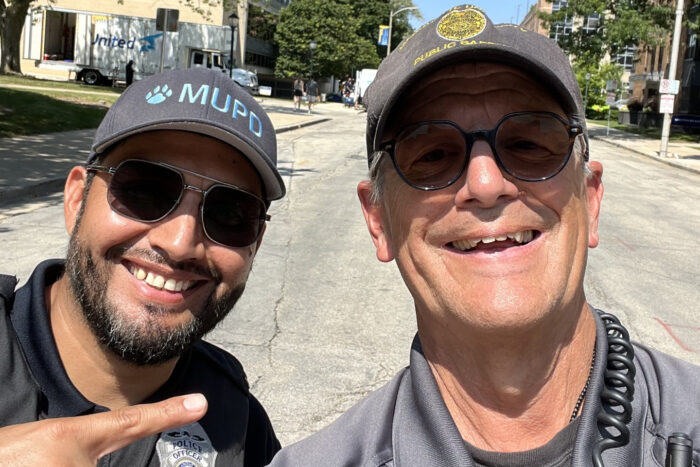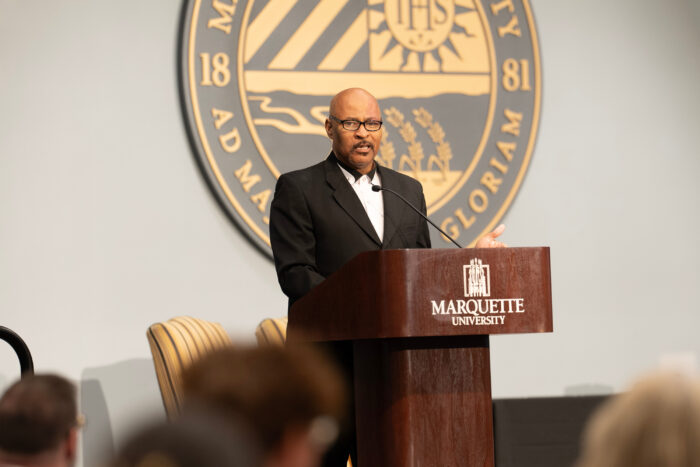The Marquette University Police Department has announced a pilot program to implement body-worn cameras throughout the department. If the pilot program is successful, the goal will be to outfit every MUPD officer with body-worn cameras by the start of the fall 2023 semester in August.
Body-worn cameras record officer interactions with members of the community, providing an additional tool in documenting calls to service and evidence during investigations. Beginning June 1, eight to 10 MUPD officers and two MUPD sergeants will be issued body cameras, giving MUPD at least one active body camera on duty at all times. Piloting the cameras gives MUPD the opportunity to address logistics and procedures ahead of full deployment in fall 2023.
According to a 2021 survey by the Wisconsin Department of Justice, the majority of police agencies in the state were in some stage of implementing a body camera program. In the city of Milwaukee, cameras are already in use by the Milwaukee Police Department and the University of Wisconsin-Milwaukee Police Department. MUPD has utilized dashboard cameras in officer vehicles since its formation in 2015.
“Body cameras have become the industry standard for law enforcement. We value our community’s trust and view this as another step forward in offering transparency for our community,” Chief Edith Hudson said. “The cameras will also be of aid in police investigations and our work. MUPD remains committed to providing the safest campus environment possible in which to learn, live and work.”
MUPD received partial funding for body-worn cameras through the Body-Worn Cameras Grant Program launched by the Wisconsin Department of Justice in 2022 to support and defray costs for the purchase of body-worn cameras and digital storage and retrieval systems.
With more than 60 trained public safety professionals, including 44 sworn police officers, MUPD has an extensive safety infrastructure throughout campus and in the near off-campus neighborhood, which includes more than 1,200 cameras and more than 450 Blue Light phones, a state-of-the-art command information center and the nationally recognized Department of Campus Safety.


